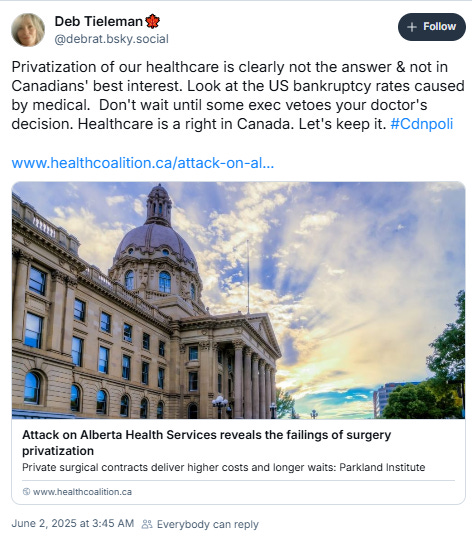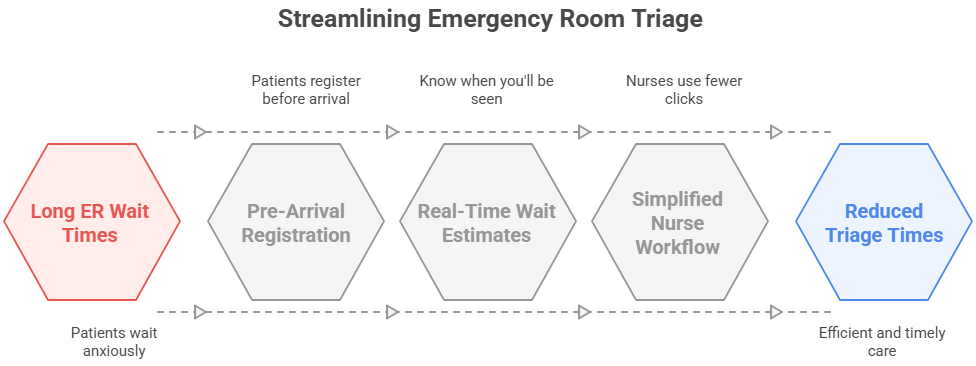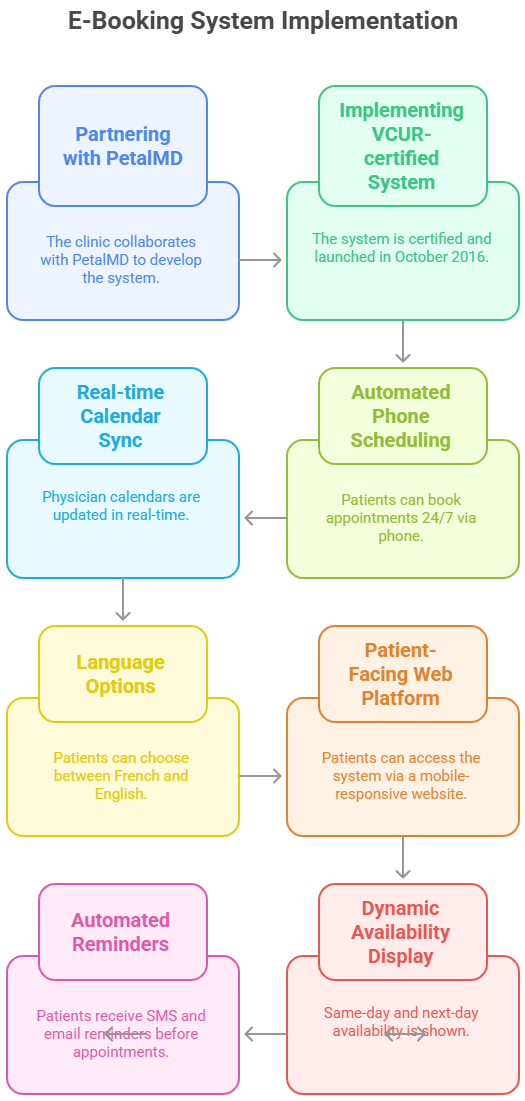🩺Paging Dr. Anyone?
Your Weekly Dose of Health Insights – Because Your Health Isn’t Just a Headline
Good morning, Other Siders!
Hope your week’s off to a fantastic start—I spent mine chuckling at the story of Dorothy, a 96-year-old from Nova Scotia who placed a "Doctor Wanted" ad to finally snag a family physician (spoiler alert: it worked!). It’s wild how creative we get when the system lets us down, right? Speaking of creative solutions, I’m super excited to share some awesome real-world case studies from around the globe that you can swipe immediately to level-up your healthcare practice. And of course, if you want a hand turning these stories into real-life wins, The Other Side of Care crew (aka yours truly) is always here, ready to tackle tricky challenges with digital smarts, transformation magic, and good ol' fashioned know-how.
Let’s dive in 👇
In today’s edition:
Doctor Wanted: 96-Year-Old's Ad Goes Viral
Kelowna Kids in Crisis
ER Wait Times Slashed!
Case in Point: Transforming Walk-In Care
Dive in and enjoy the ride. 🚀
News that Impacts You!
Doctor Wanted: 96-Year-Old's Ad Goes Viral
Dorothy Lamont, a 96-year-old from Nova Scotia, took out a newspaper ad seeking a family doctor after being on a waitlist for nearly three years. Her story highlights the ongoing primary care crisis in Canada, where approximately 6.5 million citizens lack access to a family doctor. The ad garnered multiple responses, and Dorothy finally found a physician. Many Canadians, especially seniors, are resorting to unconventional methods to access basic healthcare services.
How can we address the growing shortage of primary care physicians in Canada?
Kelowna Kids in Crisis 👶
BC health officials knew about staffing problems at Kelowna General Hospital nine months before they had to shut down their entire pediatric ward for six weeks. That's like knowing your car needs brakes but waiting until you're heading down a mountain to fix them. Over 130 physicians are calling this "unprecedented" for a hospital of this size. The closure affects all scheduled pediatric surgeries from May 26 to July 4, and doctors are basically doing emergency triage for which kids get care. Parents in Kelowna with sick children now have to drive hours to Vancouver or Calgary for basic pediatric care – turning a local emergency into a family crisis.
What early warning systems does your organization have to prevent service closures before they become disasters?
ER Wait Times Slashed! 🚨
EmergConnect just proved that Canadian innovation isn't just about politeness. This Ontario-based company is cutting emergency room triage times by up to 60% with their digital platform. Think of it as Uber for healthcare – patients can register before arriving, get real-time wait estimates, and nurses went from clicking 64 times per patient to just 4 clicks. It's like Marie Kondo came for hospital workflows and said "this sparks efficiency!" The company raised $2M CAD and is expanding to BC and Quebec. Instead of sitting in an ER for 8 hours wondering if your chest pain is serious or just too much Tim Hortons, you'll know exactly when you'll be seen and can register from your car.
How could your organization implement similar patient-centric digital solutions to reduce wait times?
💭Let us know what you think in the comment section.
🕵️♀️Case in Point
Transforming Walk-In Care: Centre Médical Laval’s E-Booking Revolution
Background & Problem: In 2016, Centre Médical Laval – a 19-physician walk-in clinic in Quebec handling 750+ weekly patients – faced a crisis familiar to Canadian primary care providers. Each morning, dozens of patients queued outside before dawn, creating:
Safety risks in extreme weather
90-minute phone wait times for same-day appointments
$2,200/week spent on third-party callback services
15% no-show rate despite overcapacity
"We were trapped in a 1980s-style system," recalled Assistant Director Ghislaine Bilodeau
Administrative staff spent 2.5 hours daily managing phone chaos instead of supporting clinical workflows
The Solution: Partnering with Quebec-based PetalMD, the clinic implemented a VCUR-certified e-booking system in October 2016, focusing on:
Implementation Strategy:
Gradual rollout: 40% → 75% → 100% of slots online over 3 weeks
Staff training: 4-hour workshops on slot management & conflict resolution
Clinic signage: "Skip the line – book online!" posters in waiting areas
The Outcome:
Quantifiable Outcomes (2016-2017)
Patient Feedback (n=1,892):
94% rated e-booking "easier than phone calls"
88% appreciated avoiding callback fees ($2.95/call)
76% booked outside clinic hours (6 PM - 8 AM
How We Can Help: At The Other Side of Care, we specialize in replicating such successes across Canadian healthcare settings. Our approach includes:
Phased Implementation That Protects Productivity: Drawing from Laval’s 3-week rollout blueprint, we initiate with 40% "low-risk" appointment slots, provide bilingual staff training during off-hours, and design effective patient communication strategies.
Staff Empowerment Strategies: We develop incentive structures, such as annual bonuses for E-Booking Champions, conduct weekly metrics reviews, and create conflict resolution protocols to address staff concerns.
Preventing "Pilot Project Purgatory": To ensure scalability, we integrate e-booking metrics into existing PMS reports, establish shared decision-making protocols, and synchronize with EMRs for automatic visit summaries.
Tailored Patient Engagement: We design SMS/email reminders to reduce no-shows to below 5%, build partnerships with local pharmacies for offline promotion, and implement legally vetted late cancellation fees.
📈What’s Trending🔥

Referral
The Friendly Side of Care: Bring a Pal!
Share this link with another healthcare nerd, practitioner, or someone you feel will benefit from this information
Help Us Help You
Got a healthcare story that's bugging you? A trend you want us to investigate? Or maybe you just want to tell us how amazing (or terrible) this newsletter is? Hit reply and let us know what's on your mind. We read every single email and use your feedback to make this newsletter even better.
Remember, we're not just here to inform – we're here to transform. Keep questioning, keep innovating, and keep caring.





